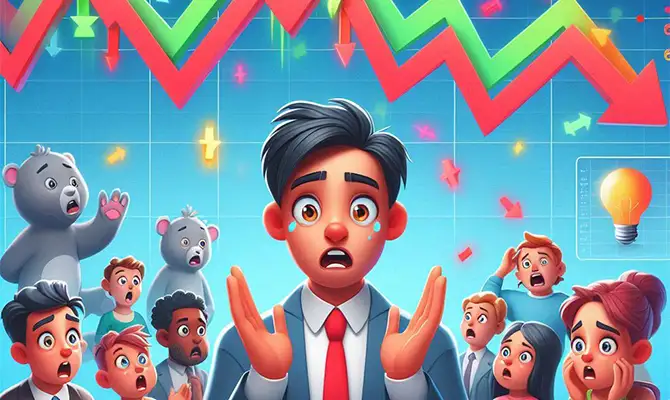A market crash is a sudden and big drop in the value of the stock market that almost nobody really expected.
This happens when lots of people start selling their investments at the same time, causing prices to fall quickly. A stock market crash can lead to panic and affect the economy.
There have been several stock market crashes throughout history. Here are a few of the most famous ones:
- Tulip Mania (1637): Often considered the first recorded speculative bubble, it occurred in the Dutch Republic when prices for tulip bulbs reached extraordinarily high levels before collapsing.
- South Sea Bubble (1720): This crash affected early European stock markets, particularly in the UK, and was caused by speculative investments in the South Sea Company.
- Wall Street Crash of 1929: Also known as the Great Crash, it led to the Great Depression and was triggered by a speculative bubble in the US stock market.
- Black Monday (1987): On October 19, 1987, stock markets around the world crashed, with the Dow Jones Industrial Average falling by 22.6% in a single day.
- Dot-com Bubble Burst (2000): Fueled by the excitement around internet companies, the NASDAQ lost over 80% of its value by 2002.
- Global Financial Crisis (2008): Sparked by the collapse of the US housing market, this crisis led to significant declines in stock markets worldwide.
